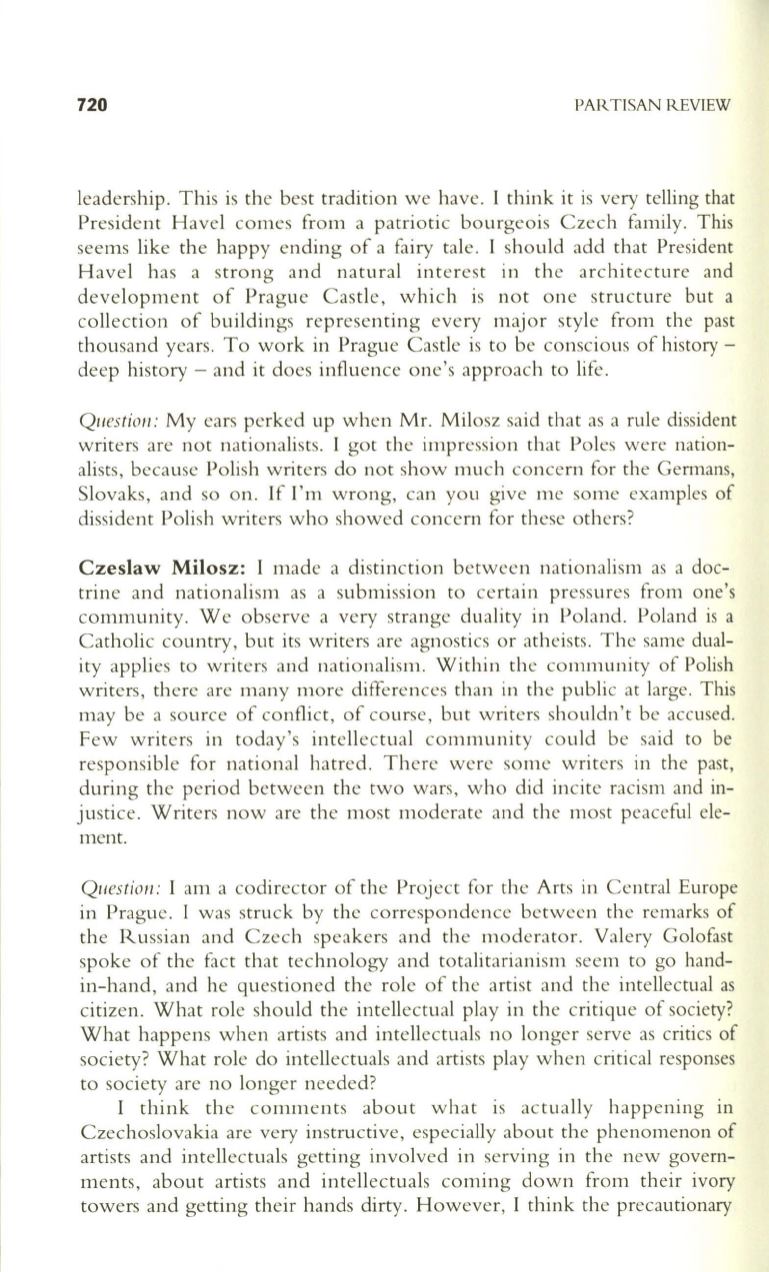
720
PAR.TISAN REVIEW
leadership. This is the best tradition we have. I think it is very telling that
President Havel comes from a patriotic bourgeois Czech family. This
seems like the happy ending of a fairy tale. I should add that President
Havel has a strong and natural interest in the architecture and
development of Prague Castle, which is not one structure but a
collection of buildings representing every major style from the past
thousand years. To work in Prague Castle is to be conscious of history -
deep history - and it does influence one's approach to life.
Question:
My ears perked up when Mr. Milosz said that as a rule dissident
writers are not nationalists. I got the impression that Poles were nation–
alists, because Polish writers do not show much concern for the Germans,
Slovaks, and so on. If I'm wrong, can you give me some examples of
dissident Polish writers who showed concern for these others?
Czeslaw Milosz: I
made a distinction between nationalism as a doc–
trine and nationalism as a submission to certain pressures from one's
community. We observe a very strange duality in Poland. Poland is a
Catholic country, but its writers are agnostics or atheists. The same dual–
ity applies to writers and nationalism. Within the community of Polish
writers, there are many more differences than in the public at large. This
may be a source of conflict, of course, but writers shouldn't be accused.
Few writers in today's intellectual community could be said to be
responsible for national hatred. There were some writers in the past,
during the period between the two wars, who did incite racism and in–
justice. Writers now are the most moderate and the most peaceful ele–
ment.
Question:
I am a codirector of the Project for the Arts in Central Europe
in Prague. I was struck by the correspondence between the remarks of
the Russian and Czech speakers and the moderator. Valery Golofast
spoke of the fact that technology and totalitarianism seem to go hand–
in-hand, and he questioned the role of the artist and the intellectual as
citizen. What role should the intellectual play in the critique of society?
What happens when artists and intellectuals no longer serve as critics of
society? What role do intellectuals and artists play when critical responses
to society are no longer needed?
I think the comments about what is actually happening in
Czechoslovakia are very instructive, especially about the phenomenon of
artists and intellectuals getting involved in serving in the new govern–
ments, about artists and intellectuals coming down from their ivory
towers and getting their hands dirty. However, I think the precautionary


